Petrochemicals Antibacterial Enzymes 15-05-2020 - Arhive
Petrochemicals Antibacterial Enzymes
Crude Oil Prices Trend

-BIOPLASTICS AND GREEN COMPOSITES FROM RENEWABLE
RESOURCES: WHERE WE ARE AND FUTURE DIRECTIONS!
Introduction
The sky rocketing price of petroleum along with its dwindling nature coupled with climate change concern and continued population growth have drawn the urgency for the plastic industries in
adapting towards sustainability. The government’s push for green products, consumers’ desire and energy conservation are some of the key factors that drive research towards the development of
renewable resource-based polymeric biomaterials.
The use of bio- or renewable carbon unlike petro-carbon for manufacturing bioplastics and biobased materials is moving forward for a reduced carbon footprint.
The goal is to use biobased materials containing the maximum possible amount of renewable biomass-based derivatives to have a sustainable future.
Search for potential biobased alternatives from energy to plastics and their viability for real world uses is directed towards our reduced dependency on petroleum .
The incorporation of bio-resources, e.g. crop-derived green plastics and plant derived natural fibres into composite structures are gaining prime importance in designing and engineering of green composites.
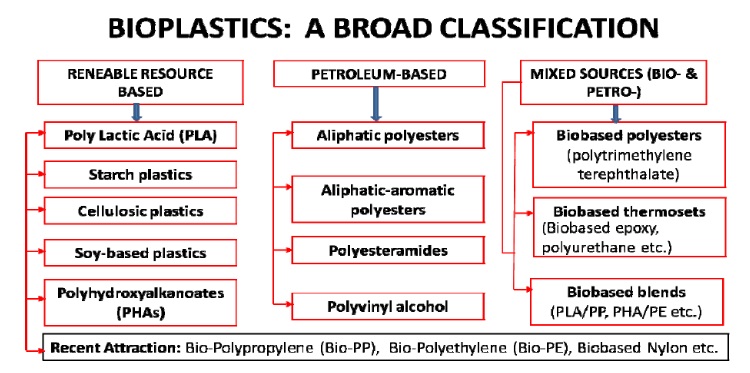
-Technology Extending Lifecycle of Reusable PET Bottles Up for Prestigious German Award
What does it take to earn a spot in the winner’s circle of the circular plastics economy? According to IKV — the Institute for Plastics Processing at RWTH Aachen University in Aachen, Germany — a key attribute is that the product should retain its value as long as possible throughout its lifecycle. Petrochemicals Antibacterial Enzymes
Reusable PET bottles are a good example: After use, they can be washed with caustic soda solution and refilled. Compared to glass, however, PET is not gas-tight, which significantly reduces the shelf life of juices or carbonated beverages such as soft drinks or beer. Despite its many ecological advantages, the reusable PET content in fruit-juice packaging in Germany was no higher than 0.5% in 2018. This disadvantage of PET bottles can be reversed by applying a silicon oxide (SiOx) barrier coating via plasma technology.
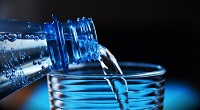
-Europe naphtha prices rebound on Asia demand pull, crude but glut looms large
European naphtha spot prices have revived from April lows on the back of improving crude oil futures, falling refinery run rates, certain demand pull from Asia, and feedstock economics favouring consumption rates at crackers.
However, price downward pressure persists as deals are being concluded at double-digit discounts for early June deliveries amid ongoing supply glut and limited demand.
That pressure was felt on Monday, with spot prices closing at $208/tonne CIF (cost, insurance, freight) NWE (northwest Europe) for H1 June deliveries, down from last week’s close at $214-215/tonne CIF NWE. Petrochemicals Antibacterial Enzymes

–PX-naphtha spread approaching previous lows
Since late Apr, the coronavirus pandemic has been getting tamed. International crude oil price rises significantly amid easing of lockdowns globally, expectation of economy re-opening, coupled with implementation of production cuts practiced by OPEC and its allies. As of May 13, WTI crude oil futures soared to $25.29/bbl and Brent futures rose to $29.19/bbl from previous lows (the rollover from May to Jun contracts for crude oil also contributed to the price rise). However, naphtha price lagged behind, and that of PX advanced even more slowly than its feedstock. Petrochemicals Antibacterial Enzymes
As a result, the spread of PX to naphtha and MX was crunched to a low level, at around $235/mt and $60/mt respectively as of May 13, approaching the low points seen in late 2019 (PX-naphtha spread around $222/mt in the end of Nov 2019). The biggest constrain weighing on PX price is the fast-rising inventory since the first quarter of 2020.
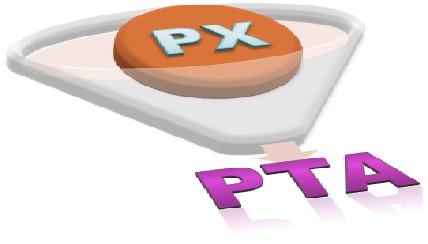
-MEGlobal raises June MEG prices by USD10 per ton
MEGlobal, the world leader in the production of monoethylene glycol (MEG) and diethylene glycol (DG), has nominated the June MEG contract price for Asia at USD570 per tonne, which is USD10 per tonne higher than in May, the company said. .
The price was announced on terms of delivery CFR Asia. The company lowered MEG prices amid falling spot prices in the market. Petrochemicals Antibacterial Enzymes
The price increase followed the recent MEG price increase in early May amid replenishment of stocks after prices fell to historic lows after the 2008 global financial crisis.
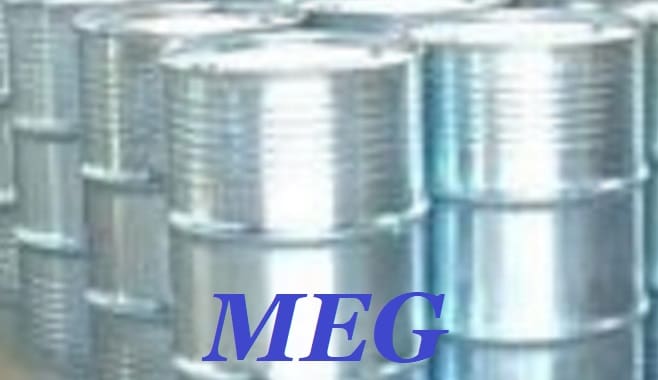
-Is EIA Data Disguising A Disastrous Decline In U.S. Shale?
The Trump administration claims that the U.S. is “transitioning to greatness,” and that energy companies are going to see “massive gains.” U.S. Secretary of Energy Dan Brouillette says there is “stability” in the oil market, and that economic activity will “explode” on the other side of the pandemic.
Thanks to the leadership of President @realDonaldTrump, the transition to greatness is well underway, and our economy along with our U.S. energy companies are going to see massive gains on the other side of this pandemic. Petrochemicals Antibacterial Enzymes

-Coronavirus, oil price crash – impact on chemicals
Crude oil markets are showing “early signs of rebalancing” as output cuts by OPEC+ countries kick in and some economies move to reopen, the executive director at the International Energy Agency (IEA) said on Thursday.
Some petrochemicals end markets like those for medical equipment and disinfectants have staged a revival during the coronavirus pandemic, a trend that is likely to stay in the long term, said Fatih Birol.
In European recycled polyethylene terephthalate (R-PET) markets there is on-going price pressure from virgin PET. Demand dynamics are becoming more regional. Many companies are sticking to sustainability goals despite the coronavirs pandemic.
On this topic page we analyse the impact of coronavirus and the oil price collapse on chemical markets and bring together the latest news reported by ICIS. To visit the ICIS energy markets topic page, click here. Petrochemicals Antibacterial Enzymes

-US Q2 industrial ethanol contracts rise on booming demand, short supply
US Q2 industrial ethanol contract prices were assessed at a increase on Wednesday, amid booming demand and short supply.
ICIS assessed the Q2 200-proof industrial ethanol contract price at $4.20-4.80/gal FOB (free on board) US Gulf Coast (USG), and the Q2 190-proof industrial ethanol contract at $4.00-4.60/gal FOB USG. Petrochemicals Antibacterial Enzymes
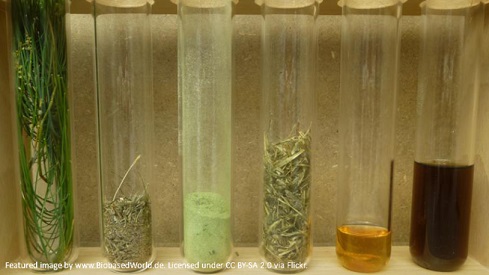
-Stockland : Whiteman Edge introduces recycled roads
Saving litter from landfill with every kilometre
Whiteman Edge will be Stockland’s first community in Australia to trial a new recycled asphalt pavement that will help divert hundreds of thousands of plastic bags, glass bottles, and printer toners from landfill.
The innovative product contains 30% recycled asphalt, which diverts up to 500,000 plastic bags and packaging equivalents, 165,000 glass bottles equivalents, and 12,000 printer toners from landfill for every one kilometre of a two-lane Reconophalt road.
The new Downer Reconophalt product will be used to build roads for Whiteman Edge’s new stages, 31 and 32 and is a collaboration with the City of Swan.
Stockland General Manager WA Residential Col Dutton said the trial of Downer’s Reconophalt product at Whiteman Edge is part of Stockland’s long-term, national sustainability strategy. Petrochemicals Antibacterial Enzymes
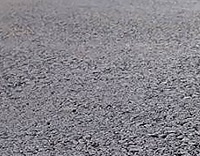
-Now it’s your turn: Saudi Arabia urges other oil producers to join output cuts
Saudi energy minister Prince Abdulaziz bin Salman and Russian counterpart Alexander Novak discussed oil market developments
OPEC and its allies agreed last month to reduce output by 9.7 million bpd for May and June, a record production cut
DUBAI: Saudi Arabia and Russia on Wednesday pledged to rebalance the global oil market and urged other producers to join them in mitigating the effects of the coronavirus pandemic on energy demand. Petrochemicals Antibacterial Enzymes
The two leading oil countries’ energy ministers, Prince Abdul Aziz bin Salman and Alexander Novak, issued a joint statement commending “the efforts of responsible producers around the world who had willingly adjusted their production out of a sense of shared responsibility.”
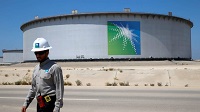
Petrochemicals Antibacterial Enzymes
Petrochemicals Biobased PEF Enzymes 14-05-2020
